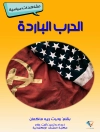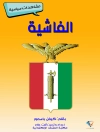The volume examines from a comparative perspective the phenomenon of aesthetic disruption within the various arts in contemporary culture. It assumes that the political potential of contemporary art is not solely derived from presenting its audiences with openly political content, but rather from creating a space of perception and interaction using formal means: a space that makes hegemonic structures of action and communication observable, thus problematizing their self-evidence. The contributions conceptualize historical and contemporary politics of form in the media, which aim to be more than mere shock strategies, which are concerned not just with the ‘narcissistic’ exhibition of art as art, but also with the creation of a new common horizon of experience. They combine the analysis of paradigmatic works, procedures and actions with reference to theoretical debates in the fields of literature, media and art of the twentieth and twenty-first centuries. The essay-collection shows how textual, visual, auditive or performative strategies disclose their own ways of functioning, intervene in automated processes of reception and thus work on stimulating a sense of political possibilities.
The editors acknowledge support from the European Union’s Seventh Framework Program (FP 7/ 2007–2013), ERC grant agreement no. 312454.
Sobre el autor
Lars Koch, Technische Universität Dresden, Dresden, Germany; Tobias Nanz, Technische Universität Dresden, Dresden, Germany; Johannes Pause, University of Luxembourg, Esch-sur-Alzette, Luxembourg.












